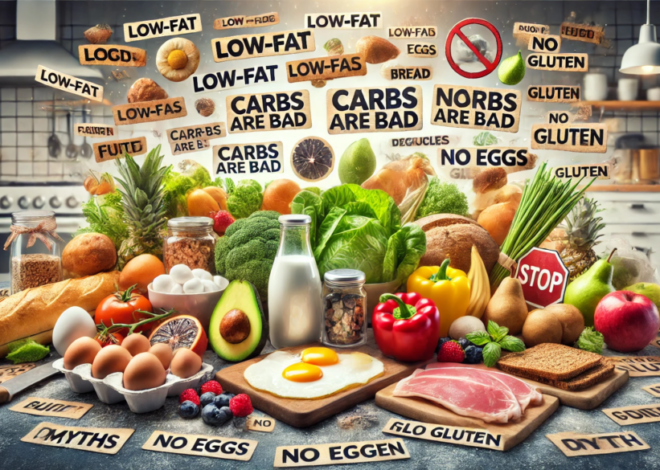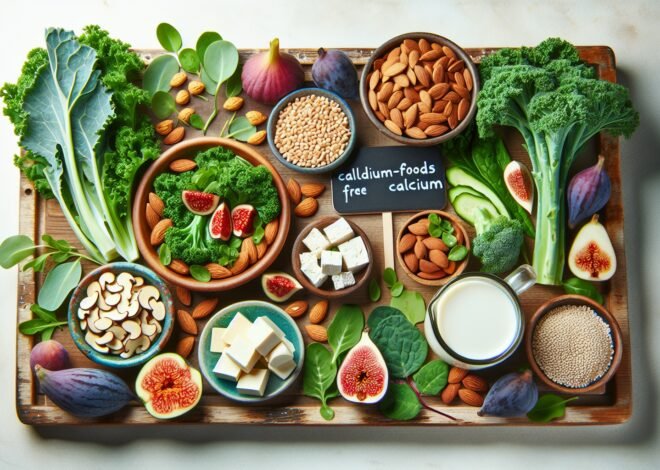
The Role of Fortified Foods in a Dairy-Free Diet
Fortified foods in a dairy-free diet play a crucial role in maintaining nutritional balance, especially in terms of calcium, vitamin D, and B12. These nutrients are vital, with studies showing that 67% of adults with nondairy diets are at risk of deficiencies. This post will explore how fortification helps fill these nutritional gaps, the most effective fortified non-dairy options, and the benefits they bring to overall health. For individuals navigating restricted diets due to lactose intolerance or personal choice, understanding the impact of fortified foods is essential. Join us as we delve into the world of fortified solutions that can empower healthier dietary choices.
Understanding the Importance of Fortified Foods in a Dairy-Free Diet
Adopting a dairy-free diet presents unique nutritional challenges. While cutting out dairy can address allergies or lifestyle choices, it raises the question of obtaining essential nutrients. Fortified foods play a crucial role here, bridging nutritional gaps left by the absence of dairy. Let’s explore the significance of fortified foods in maintaining a balanced and healthy dairy-free lifestyle.
Why Choose Fortified Foods over Natural Sources?
Natural sources of nutrients are often celebrated for their authenticity and minimal processing. However, in a dairy-free diet, fortified foods become indispensable. Natural alternatives might lack sufficient levels of nutrients like calcium and vitamin D, typically abundant in dairy products. Fortified foods ensure a consistent intake of these vital nutrients, making it easier to meet daily nutritional requirements. They are specifically designed to compensate for what a dairy-free diet might lack, providing a reliable and convenient option for those avoiding dairy.
Common Nutrients Lacking in a Dairy-Free Diet
Eliminating dairy from one’s diet can lead to deficiencies in several key nutrients. Calcium, a mineral critical for bone health, is prominently found in dairy products. Vitamin D, often added to milk, is vital for calcium absorption and immune function. Dairy also provides vitamin B12, essential for nerve function and red blood cell production. A lack of these nutrients can result in health issues, underscoring the importance of carefully selecting alternative sources to maintain a balanced diet.
How Fortification Complements Dietary Restrictions
Fortification is a process that enriches foods with additional nutrients, aligning perfectly with dietary restrictions like dairy-free living. It allows individuals who cannot consume dairy to still receive key nutrients without altering their dietary choices. Importantly, fortification offers flexibility, enabling people to enjoy a variety of foods while ensuring nutritional adequacy. By embracing fortified foods, individuals can adhere to their dietary restrictions without compromising their health and well-being.
Key Fortified Foods to Include in a Dairy-Free Lifestyle
Incorporating fortified foods into a dairy-free diet is essential for achieving nutritional balance. These foods provide a reliable source of key nutrients, making it easier to maintain health while enjoying a diverse and satisfying diet. Below, we explore some of the most beneficial fortified foods to include in a dairy-free lifestyle.
Plant-Based Milk Alternatives Fortified with Calcium and Vitamin D
Plant-based milk alternatives, such as almond, soy, and oat milk, are popular choices for those avoiding dairy. When fortified with calcium and vitamin D, these beverages become excellent substitutes for cow’s milk. They offer a similar nutrient profile, ensuring that essential vitamins and minerals are not missed. Additionally, plant-based milks are often lower in calories and free from cholesterol, making them a heart-healthy choice. When selecting a plant-based milk, look for labels indicating fortification to ensure you receive the full nutritional benefits.
Nutritional Yeast and Its B-Vitamin Fortification Benefits
Nutritional yeast is a versatile and flavorful ingredient, beloved by vegans and those on a dairy-free diet. It is often fortified with B-vitamins, including B12, which can be scarce in plant-based diets. Nutritional yeast adds a cheesy flavor to dishes, making it a great addition to sauces, soups, and snacks. Its fortification with B-vitamins supports energy metabolism and nervous system health, making it a valuable component of a balanced diet.
Breakfast Cereals: A Convenient Fortified Food Option
Breakfast cereals are a staple in many households, and their fortification makes them an excellent option for those on a dairy-free diet. Many cereals are enriched with vitamins and minerals like iron, vitamin D, and folic acid. They offer a quick and easy way to start the day with a nutrient-rich meal. When choosing cereals, opt for those with whole grains and minimal added sugars to maximize health benefits. Fortified breakfast cereals provide a simple solution for boosting nutrient intake without the need for complex meal planning.
Balancing a Dairy-Free Diet with Nutrient-Rich Fortified Options
Successfully balancing a dairy-free diet involves combining fortified foods with whole, nutritious ingredients. This approach ensures that all nutritional needs are met while still enjoying a varied and satisfying diet. Below, we provide tips and insights into maintaining this balance effectively.
Tips for Selecting Quality Fortified Foods
Choosing quality fortified foods is crucial for maintaining a balanced diet. Look for products with clear labeling indicating the addition of essential nutrients. Opt for brands that prioritize minimal processing and natural ingredients. Check for certifications or endorsements from reputable health organizations to ensure credibility. Pay attention to the nutrient levels in each serving to avoid overconsumption or deficiencies.
Monitoring Nutrient Intake and Avoiding Overconsumption
While fortified foods are beneficial, it’s important to monitor nutrient intake to prevent overconsumption. Excessive intake of certain vitamins and minerals can have adverse effects. Keep track of daily consumption and adjust as needed to maintain balance. Consult with healthcare professionals or nutritionists to tailor your diet to your specific needs. Moderation and variety are key to avoiding nutrient imbalances.
Integrating Fortified Foods into a Balanced Meal Plan
Incorporating fortified foods into a balanced meal plan requires thoughtful planning. Combine fortified foods with a variety of fruits, vegetables, proteins, and whole grains. This approach ensures a diverse nutrient intake and supports overall health. Plan meals ahead of time to include a range of fortified options throughout the day. Adjust portions and ingredients based on individual dietary needs and preferences.
Conclusion
Fortified foods play a crucial role in maintaining nutrient levels in a dairy-free diet. Common fortified foods include plant-based milk alternatives, cereals, and juices, which are often enriched with calcium, vitamin D, and B12. It is essential to check labels for specific nutrient fortifications to ensure proper intake. Consuming a variety of these fortified options can help prevent deficiencies common in dairy-free diets. Consulting with a healthcare provider can assist in choosing the right fortified foods to meet individual nutritional needs.
FAQ
What are the best fortified foods for a dairy-free diet?
Fortified foods ideal for a dairy-free diet include plant-based milks like almond, soy, and oat milk. Look for versions enriched with calcium, vitamin D, and vitamin B12. Fortified cereals and orange juice can also be excellent choices to boost essential nutrient intake.
Can fortified almond milk provide enough calcium on a dairy-free diet?
Fortified almond milk can deliver sufficient calcium if you choose a brand that specifically adds 30% of the daily recommended value per serving. Consuming it regularly can help meet your calcium needs without dairy.
How do fortified foods help meet nutritional needs in a dairy-free lifestyle?
Fortified foods enhance nutritional intake by adding essential vitamins and minerals often found in dairy. Calcium, vitamin D, and vitamin B12 are commonly added to support bone health, immune function, and energy levels.
Is fortified orange juice a good source of vitamin D for those avoiding dairy?
Fortified orange juice serves as a viable source of vitamin D, especially for those steering clear of dairy. Choosing a brand with added vitamin D can aid in maintaining adequate levels of this crucial nutrient.
Which nutrients should I look for in fortified foods on a dairy-free diet?
Key nutrients to consider include calcium, vitamin D, vitamin B12, and sometimes iron. These nutrients support bone health, energy production, and overall wellness, making them vital in a dairy-free diet.
Are there fortified cereals that cater to a dairy-free diet’s nutritional requirements?
Many cereals are fortified to meet the needs of a dairy-free diet. Seek options that contain added calcium, iron, and B vitamins to ensure a balanced intake of essential nutrients.











